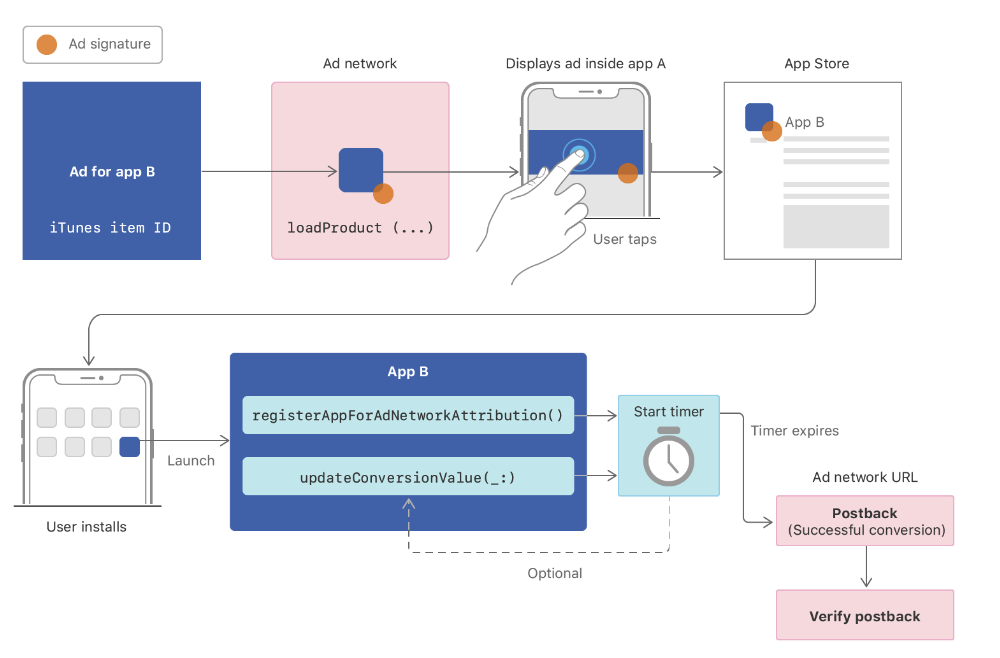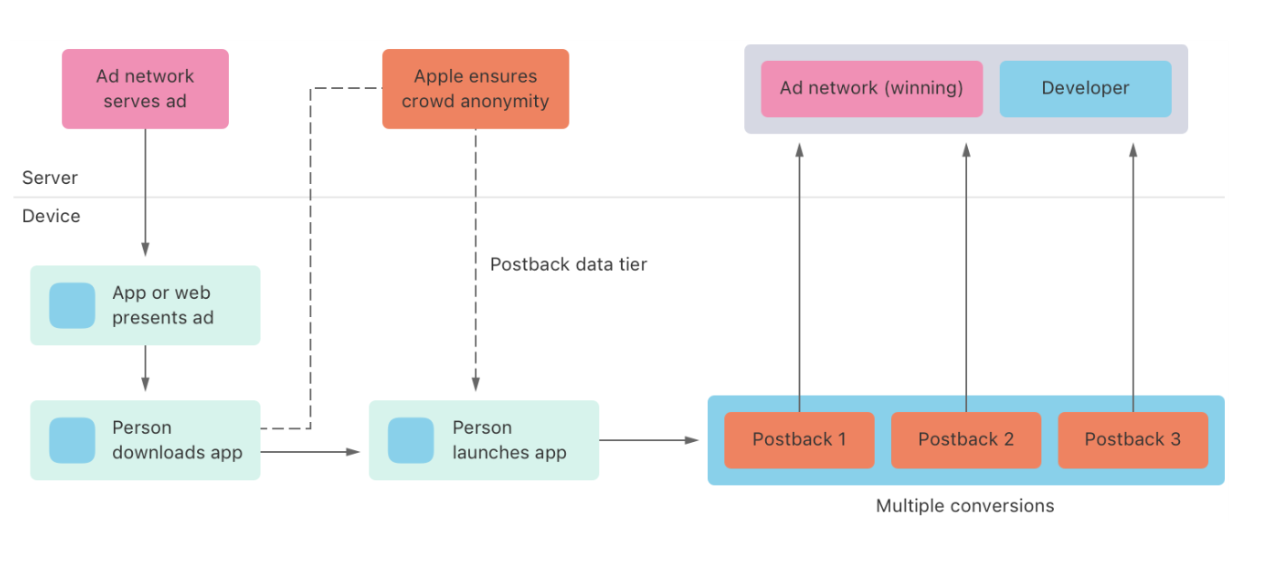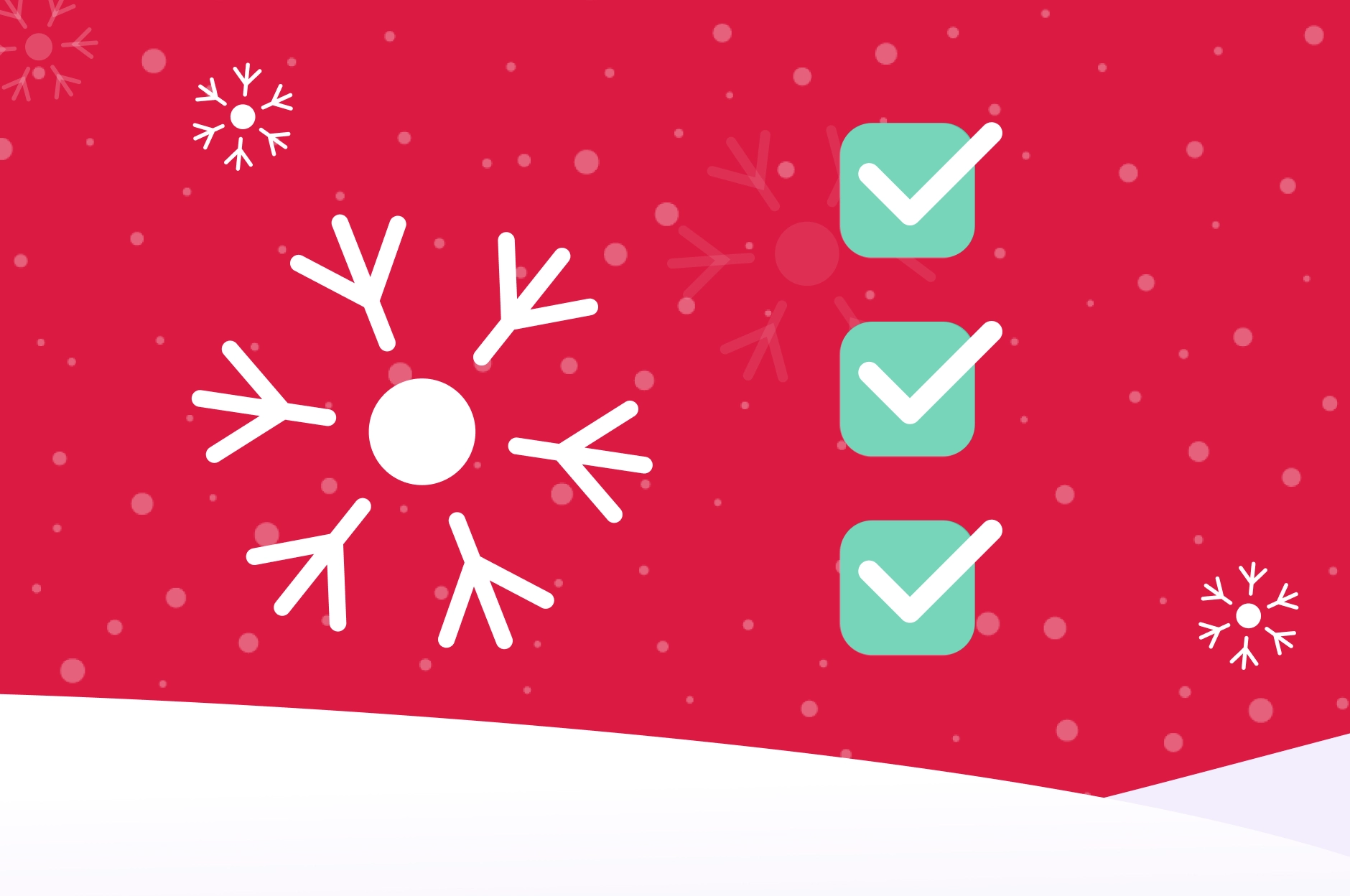

Delve into the landscape of sophisticated advertising with SKAdNetwork, Apple's cutting‑edge framework. Functioning under the guise of the StoreKit Attribution Network, this tool seamlessly navigates the nuanced terrain of app attribution, achieving a harmonious balance between campaign effectiveness and user privacy. Positioned at the forefront of iOS mobile advertising, SKAdNetwork stands out as an avant-garde solution, offering advertisers an intelligent avenue for decoding campaign insights without compromising individual privacy. Prepare for an enlightening journey where the precision of advertising strategies converges seamlessly with the sophistication of user confidentiality.
Let's touch up on a few key differences in the versions of SKAdNetwork
- SKAdNetwork 1.0, introduced with iOS 11.3, had limited parameters and a modest industry impact.
- SKAdNetwork 2.0, launched with iOS 14, expanded install tracking from the App Store with more parameters. It coincided with the impactful App Tracking Transparency policy in the mobile advertising industry.

Store Kit (click-through)
Impression (view-through)
Start impression:
End Impression:
Note that view-through attribution requires a minimum ad display time of two seconds on iOS 15.4 and later, and three seconds for earlier iOS versions.
- SKAdNetwork 3.0 (iOS 14.6) enhances attribution data for nuanced reporting of conversion values. Devices using version 3.0 can send install-validation postbacks to multiple ad networks, and the winning ad attribution is marked by a "did-win" parameter set to true.
- SKAdNetwork 4.0 (iOS 16.1) supports multiple postbacks in three conversion windows and introduces a hierarchical source identifier, replacing the old two-digit campaign identifier with a new four-digit source identifier for more granular information about the app install source.

Consider the SKAdNetwork as a team effort involving three main players:Ad Networks. These are the strategists, securing unique IDs (SKAdNetwork IDs) from Apple and signing their ads with a special seal. It's akin to creating a signature move for recognition.
Source Apps (Publishers). Think of them as the connectors. They subtly insert these special IDs into their app's setup, much like adding contact details in a phone book for seamless communication.
Advertised Apps. Now, meet the executors—the apps. They use the SKAdNetwork tools in their coding, executing actions like updatePostbackConversionValue to communicate achievements or changes, similar to updating a project status. It's a collaborative effort where each player contributes to the smooth operation of the SKAdNetwork.
Parameters correctness
Note that each parameter is expected to be sent in a specific type. Using a different type may result in a postback not being sent. Additionally, please pay attention to some expected formats.You can refer to our SKAdNetwork to review the code snippets and for the overview of the parameter types and their usage.
Note!
- Source App ID. Use an NSNumber representing the source app ID on the store. Do not confuse it with the bundle ID string. For testing, use the value
0.
- Nonce. For click-through (
KStoreProductViewController) and overlay (SKOverlayAppConfiguration) use a UUID. For view-through (SKAdImpression), useNSString.
Best Practice:
- Additional endpoint. To subscribe for updates on successful install validations for your advertised app, include the
NSAdvertisingAttributionReportEndpointkey in your app'sInfo.plistfile. Ensure that your server is configured to handle and process these postbacks (more information available here. - Testing Profile. The SKAdNetwork Device Profile is a testing tool provided by Apple that allows developers and advertisers to simulate SKAdNetwork ad attribution scenarios. Installing this profile shortens the time frame for conversion value updates and postback windows. For more information, visit here.
- SKOverlay & SKAdnetwork. It is worth noting that SKAdNetwork click-through attribution can be obtained when presenting the
SKOverlay. This can be achieved through the utilization of theSKOverlayAppConfigurationobject and itssetAdditionalValue:forKey:method. A detailed example is provided in the code snippet below.
Digital Turbine Testing Tool System
Digital Turbine's Testing Tool System facilitates users in testing the SKAdNetwork process. The tool can generate signatures for test ads and provides a test app for receiving attribution postbacks. It offers support for SKAdNetwork versions 2.0 and above. For more information, click here.



.jpg)

.webp)

